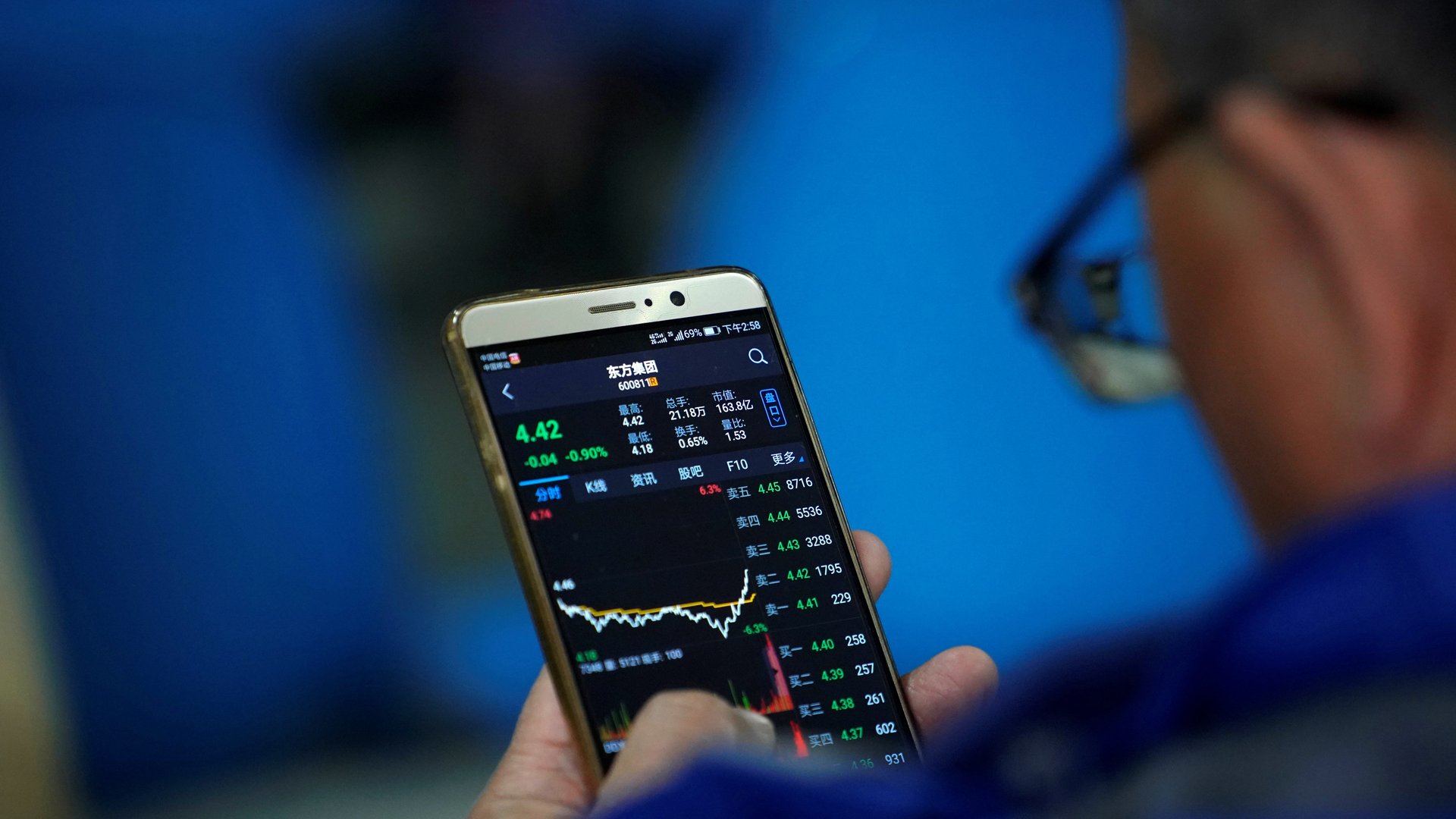Bought a hot stock that turned cold? Blame your phone
Our smartphones function like handheld engines of misdirected purchasing: unhealthy food, impulse buys—and also, it turns out, uncommonly risky stocks.


Our smartphones function like handheld engines of misdirected purchasing: unhealthy food, impulse buys—and also, it turns out, uncommonly risky stocks.
A new paper, published by academics in American and German business schools, shows that retail investors trading on their phones buy “riskier and lottery-type assets” compared to when they traded on computers. They chase stocks with hot streaks, of the kind exhibited by GameStop in January. And by tracking investors who first traded on computers and then adopted trading apps, the paper showed that they acquired riskier habits that stayed with them even when they went back to buying and selling on their computers.
The study examined transactions by customers of two large German banks, who traded stocks between 2010 and 2017. The sample comprised around 180,000 investors and their 22 million-odd transactions; more than 18,000 of these investors used the banks’ trading apps at least once.
In the literature of finance, a lottery-type stock is defined as one whose price is below the market’s median, whose volatility exceeds that of the median stock, and which gives frequent small losses and few extreme gains—a risky punt, in other words. Trading on a smartphone increases the chances of buying a lottery-type stock by 8%, the paper found. And while the sample’s investors were always trend-chasers, making nearly a fifth of their purchases based on the recent performances of hot stocks, the smartphone extended that habit further. Traders on apps were 12% more likely to buy “past winners”—stocks that had done well very recently.
The paper offers theories for the phone’s influence upon investor behavior. Having the app—the means of trading—in a pocket gives investors the chance to check the markets more often, and to make impulsive trades based on recent streaks. And the keener appetite for risk is a function of how we regard our phones, said Andreas Hackethal, a professor of finance at Goethe University in Frankfurt and one of the paper’s authors. “Traders associate smartphones more with leisure and playfulness than computers.” This is particularly so in after-hours trading, the paper argues. The later it is in the day, the more we tend to be ruled by what psychologists call system 1 thinking—the instinctive, fast kind, as opposed to system 2’s more thoughtful nature. “The smartphone finds, or even puts, the trader in a different, more loosened-up mood,” Hackethal said.
Scientists have made similar observations about how consumers behave while making other purchases online. We buy on impulse more on our phones than we otherwise would on our computers. When we order food through mobile apps, we choose unhealthier, more calorific dishes than we would if we dined out. We yield to temptation more and deliberate less.
In Hackethal’s paper, the smartphone’s effects were visible even in Germany, where investors have a relatively low taste for risk, compared to markets like the US. Additionally, the banks’ apps in their early years were “pedestrian and clumsy by today’s standards,” Hackethal said—and yet they encouraged their users to take greater risks. Newer apps, like Robinhood or Trade Republic—the kind on which the Gamestop mania unfolded—are sleeker, faster, and maybe even more enjoyable. It’s fair to assume, Hackethal said, that these apps provoke still more speculative investing behavior than the apps of the two German banks in the study. In this kind of gamified trading, everything’s fun until the games stop.